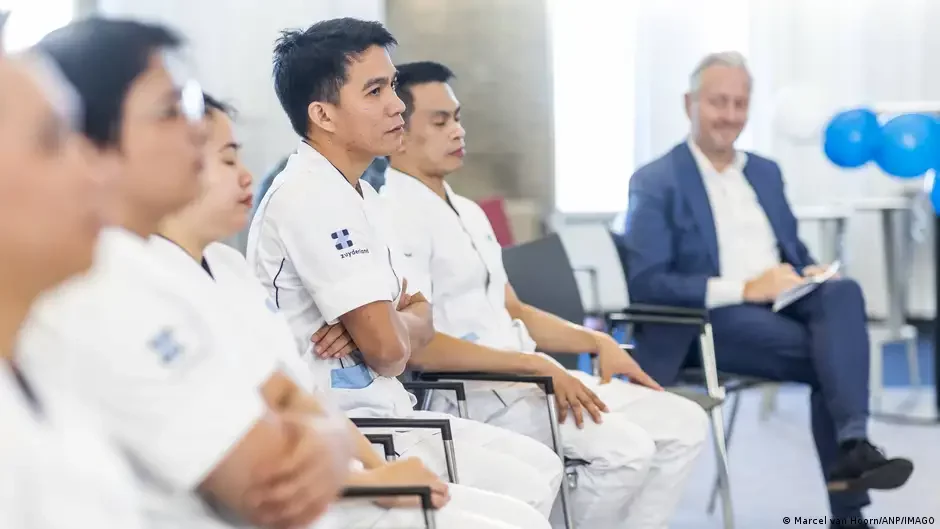In Germany, Filipino nurses face significant challenges as they navigate language barriers while contributing to the country’s healthcare system. Elaine Custodio, one such nurse, shares her experience of grappling with the complexities of the German language, despite having obtained an intermediate proficiency certificate before arriving in the country.
German’s reputation as one of the world’s most difficult languages to learn poses formidable obstacles for Filipino nurses, who often find themselves struggling to communicate effectively in healthcare settings. Joel Licay, another nurse, recounts feelings of frustration and isolation resulting from the language barrier, highlighting the emotional toll it takes on both caregivers and patients.
Maria Hesterberg, responsible for recruitment at University Hospital Bonn (UKB), acknowledges the linguistic challenges faced by foreign nurses and underscores the importance of language proficiency in providing quality healthcare. As the demand for healthcare professionals grows in Germany, efforts to support linguistic integration become increasingly crucial for the well-being of both healthcare workers and patients.
Steffen Zoller, founder of CWC Recruitment, emphasizes the role of integration programs in helping incoming healthcare workers adapt to life in Germany. Despite the linguistic hurdles, Filipino nurses continue to play a vital role in addressing Germany’s healthcare needs, underscoring the resilience and dedication of migrant healthcare professionals in the face of linguistic and cultural barriers.
As Filipino nurses strive to overcome language barriers and contribute to Germany’s healthcare system, their experiences shed light on the broader challenges faced by migrant healthcare workers worldwide. With language proficiency serving as a cornerstone of effective healthcare delivery, ongoing support and resources are essential to facilitate the integration of diverse healthcare professionals into German society.


